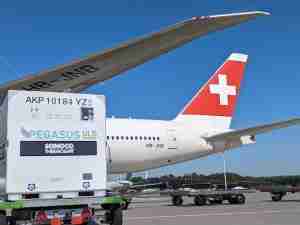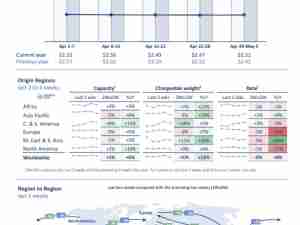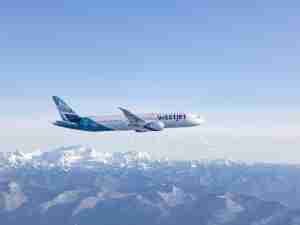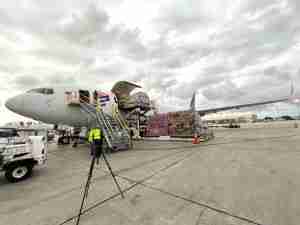The United Arab Emirates said Qatari fighter jets “intercepted” two of its commercial planes, escalating the feud straining ties among Gulf Arab monarchies. Qatar denied the first incident took place.
Both planes were using their regular flight paths to Bahrain’s capital, Manama, the U.A.E.’s official news agency WAM reported on Monday. The act “is a flagrant threat to the safety of civil aviation and a clear violation of international law,” the agency said after the first alleged incident, citing a statement from the U.A.E. Civil Aviation Authority. It didn’t name the airline involved.
The claim is “completely untrue,” Sheikh Saif Al Thani, head of the Qatari government communications office, said on Twitter. Bahrain, one of the countries boycotting Qatar, said Emirates Flight EK837 was intercepted, its state-run news agency said. That plane left Dubai almost an hour later than scheduled and arrived in Manama 32 minutes later, according to the Emirates website, slightly longer than its scheduled journey time of 20 minutes.
Qatari stocks sank.
Saudi Arabia, the U.A.E., Bahrain and Egypt severed diplomatic, trade and transport links with gas-rich Qatar in June, accusing it of destabilizing the region by supporting terrorism, a charge it denies. Mediation attempts led by the U.S. and Kuwait have failed to break the deadlock. Qatar said this month that it had informed the United Nations that a U.A.E. warplane violated its airspace on Dec. 21.
Military Confrontation ‘Unlikely’
“The U.A.E. will seek to preserve its relationship with the U.S. defense and security establishment, and will therefore probably not opt for an immediate escalation,” said Ayham Kamel, head of the Middle East and North Africa at Eurasia Group. But while a military confrontation in the Gulf crisis “is very unlikely, it’s far from inconceivable,” he said.
The U.S. Air Force Central Command, which is based at Qatar’s al-Udeid Air Base, didn’t immediately have any report about any incident, the Associated Press quoted Air Force spokesman Lieutenant-Colonel Damien Pickart as saying. Pickart noted that U.S. forces don’t routinely monitor the flights and operations of the Qatari air force, the AP said.
After a period of relative quiet, the row between the Gulf neighbors came to the fore again on Sunday when Sheikh Abdullah Bin Ali Al-Thani, a descendant of Qatar’s founder, accused the U.A.E. of holding him against his will.
Sheikh Abdullah was courted by Saudi Arabia’s King Salman and his name was touted in U.A.E. media last year as a possible replacement for Qatari ruler Sheikh Tamim bin Hamad Al Thani. U.A.E. officials denied the sheikh was being held.
Qatar’s benchmark stocks index reversed gains after Monday’s report, dropping 2.5 percent at the close in Doha, the biggest fall since the dispute broke out. Dubai stocks also extended losses.












